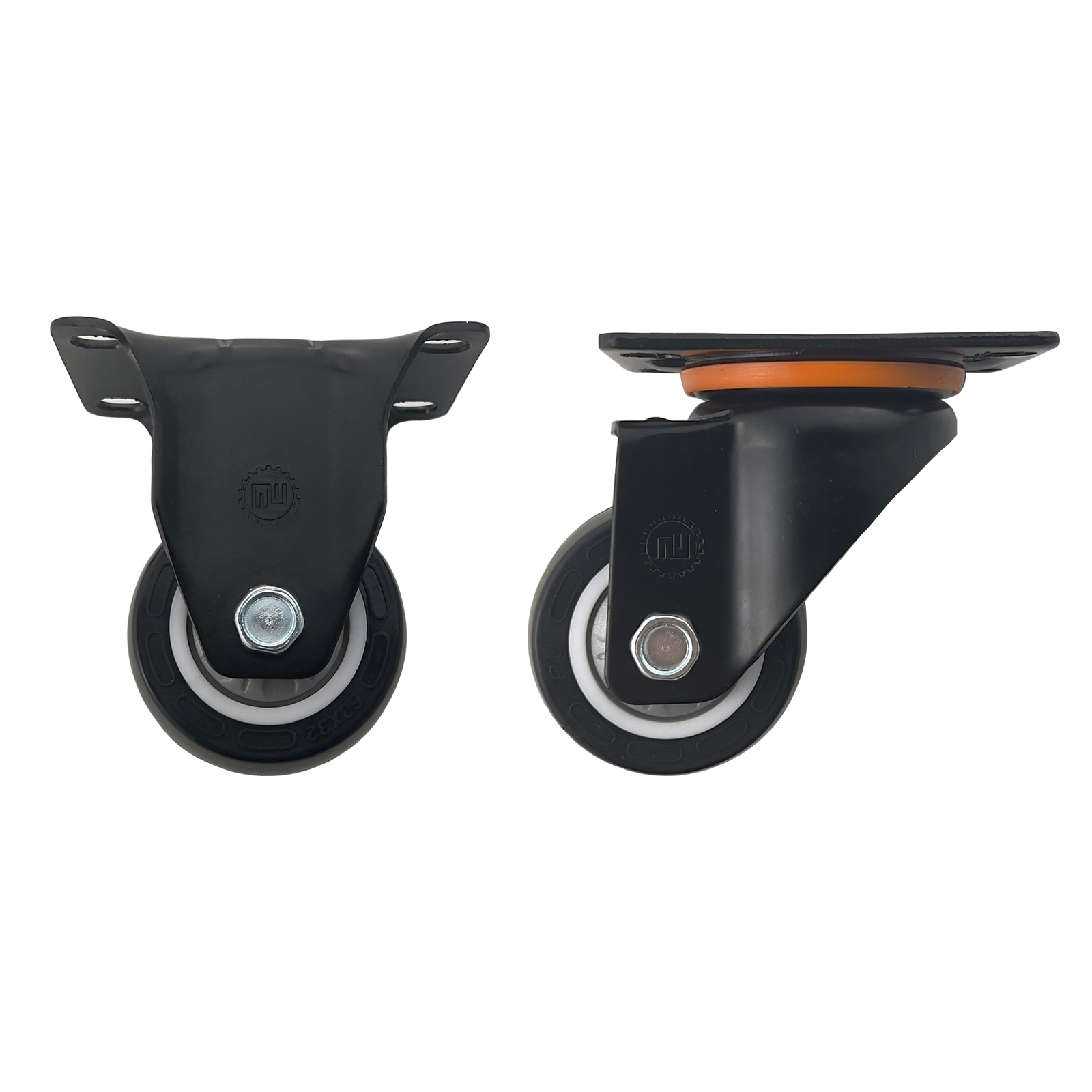When it comes to material handling, choosing the right caster wheels for heavy loads is crucial. Whether you're outfitting industrial carts, warehouse equipment, or heavy-duty platforms, your decision between steel caster wheels and nylon caster wheels can significantly impact performance, safety, and maintenance costs. This comprehensive guide will help you determine which type of heavy-duty caster wheel best suits your needs.
Understanding Heavy Load Caster Wheels
Caster wheels are an integral component of mobility in industrial and commercial settings. The key factors influencing your decision include:
Load capacity
● Durability
● Floor surface compatibility
● Noise level
● Resistance to chemicals and environmental factors
When handling heavy loads, choosing the correct wheel material—typically between steel and nylon—ensures optimal efficiency and safety.
Steel Caster Wheels: High Strength for Demanding Applications
Advantages of Steel Caster Wheels
Extreme Load Capacity
● Steel caster wheels are known for their ability to carry extremely heavy loads, often exceeding thousands of pounds per wheel.
● Ideal for industrial equipment, manufacturing plants, and steel mills.
High Impact Resistance
● Built to withstand shocks, impacts, and rigorous environments.
● Excellent for towing applications and heavy-duty platforms.
Temperature Resistance
● Can operate in extreme temperature conditions, including high-heat environments.
● Suitable for foundries and welding stations.
Long Service Life
● Less wear and tear over time, especially on smooth concrete floors.
Disadvantages of Steel Caster Wheels
Floor Damage: Can wear down or damage delicate flooring such as epoxy or tiles.
Noise: Steel wheels are significantly louder, especially on hard surfaces.
Lack of Shock Absorption: Poor performance on uneven terrain without a suspension system.
Best Uses for Steel Caster Wheels
● Heavy machinery
● Industrial carts with static loads
● Environments with sharp temperature changes
● Where high-load capacity caster wheels are essential
Nylon Caster Wheels: Lightweight but Strong
Advantages of Nylon Caster Wheels
High Load Capacity with Lightweight Design
● Nylon wheels are lighter but still capable of handling heavy loads efficiently.
Floor Protection
● Much gentler on flooring, reducing the risk of damage or marks.
● Ideal for use on tile, wood, or epoxy-coated floors.
Chemical Resistance
● Resistant to oils, greases, and a wide range of chemicals.
● Common in food processing and pharmaceutical industries.
Corrosion Resistance
● Nylon wheels do not rust, making them ideal for wet or humid environments.
Cost-Effective
● Often more economical compared to steel caster wheels.
Noise Reduction
● Quieter operation on most surfaces compared to metal wheels.
Disadvantages of Nylon Caster Wheels
Lower Temperature Tolerance: Nylon can warp or degrade at high temperatures.
Moderate Impact Resistance: Not ideal for environments with high shock loads or abrasive debris.
Best Uses for Nylon Caster Wheels
● Medical and laboratory equipment
● Food processing plants
● Lightweight trolleys requiring heavy-duty movement
● Environments requiring low-noise caster wheels
Key Comparison: Steel vs Nylon Caster Wheels
| Feature | Steel Caster Wheels | Nylon Caster Wheels |
| Load Capacity | Excellent (up to several tons) | Very Good (up to 2,000 lbs) |
| Floor Surface Compatibility | Rough concrete, metal plates | Tile, wood, epoxy, sealed floors |
| Noise Level | High | Low to Moderate |
| Shock Resistance | Excellent | Moderate |
| Temperature Resistance | Up to 1000°F+ | Up to 250°F |
| Chemical Resistance | Low | High |
| Corrosion Resistance | Low | Excellent |
| Cost | Higher | More Affordable |
Choosing the Right Heavy-Duty Caster Wheel
When selecting between nylon vs steel caster wheels, consider the following:
Total Load Capacity
● Always calculate the total load and divide it by the number of wheels used. Include a 25% safety margin.
● For example, if your equipment weighs 4,000 lbs, and you use four wheels, choose wheels rated for at least 1,250 lbs each.
Surface Type
● For smooth, clean floors: Nylon is ideal.
● For rough or damaged floors: Steel performs better.
Environmental Conditions
● High heat or metal shavings? Use steel.
● Moisture or chemicals? Choose nylon.
Operational Speed
● Steel wheels are preferred for towing or moving heavy equipment at higher speeds.
Noise Considerations
● For noise-sensitive environments such as hospitals or laboratories, nylon wheels are far superior.
When to Use Both Steel and Nylon Caster Wheels?
Some industrial users even opt for a combination of both materials. For example, a cart may have nylon caster wheels in front for steering ease and steel caster wheels in the rear for load support. Always consult a caster specialist to optimize the design.
Maintenance Tips for Heavy-Duty Caster Wheels
Regardless of material, proper maintenance ensures longevity and safety:
● Regularly inspect for cracks, corrosion, and flat spots
● Lubricate bearings monthly
● Check wheel alignment
● Clean wheels to remove debris, chemicals, and grime
Conclusion: Which One is Best for You?
Choosing the right heavy-duty caster wheel is not just a technical decision—it affects your productivity, cost-efficiency, and workplace safety. Both steel caster wheels and nylon caster wheels offer unique benefits when moving heavy loads. The best choice depends on your specific application needs. If your priority is maximum load capacity and durability, steel is your best option. If you need floor protection, quiet operation, and chemical resistance, nylon is likely the better fit.
